
Gas Water Heater Vent Configurations
Consult a professional plumbing contractor to determine the best vent configuration for your water heater based on factors such as fuel type, installation location, and local building codes. They can recommend the most suitable venting materials and design to ensure safe and efficient operation.
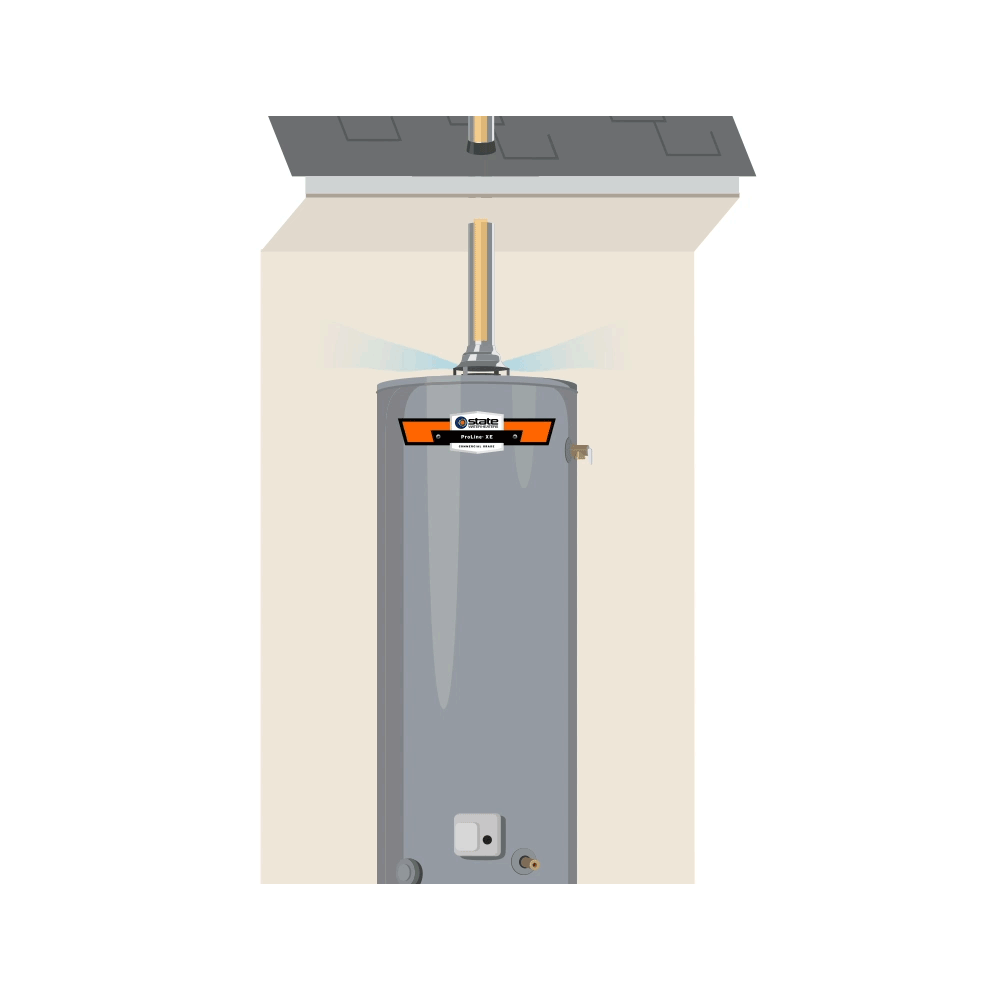
Standard Atmospheric Vent
Standard atmospheric gas water heaters are the most common type of residential gas water heaters, relying on the principle of hot air rising for their operation. These water heaters expel their exhaust gasses through a dedicated vertical or upward-sloping metal duct vent, allowing the hot exhaust to exit the home. In some cases, this venting system may be shared with other atmospheric vent appliances like furnaces.
It's crucial to ensure that your home's vent system is in proper working condition when installing a standard atmospheric vent water heater. Any obstructions or misalignments in the venting system could lead to the release of excess heat and fumes into the surrounding environment, posing safety hazards. Therefore, it's advisable to engage a professional plumbing contractor for the installation of these water heaters to ensure compliance with safety standards and optimal performance.
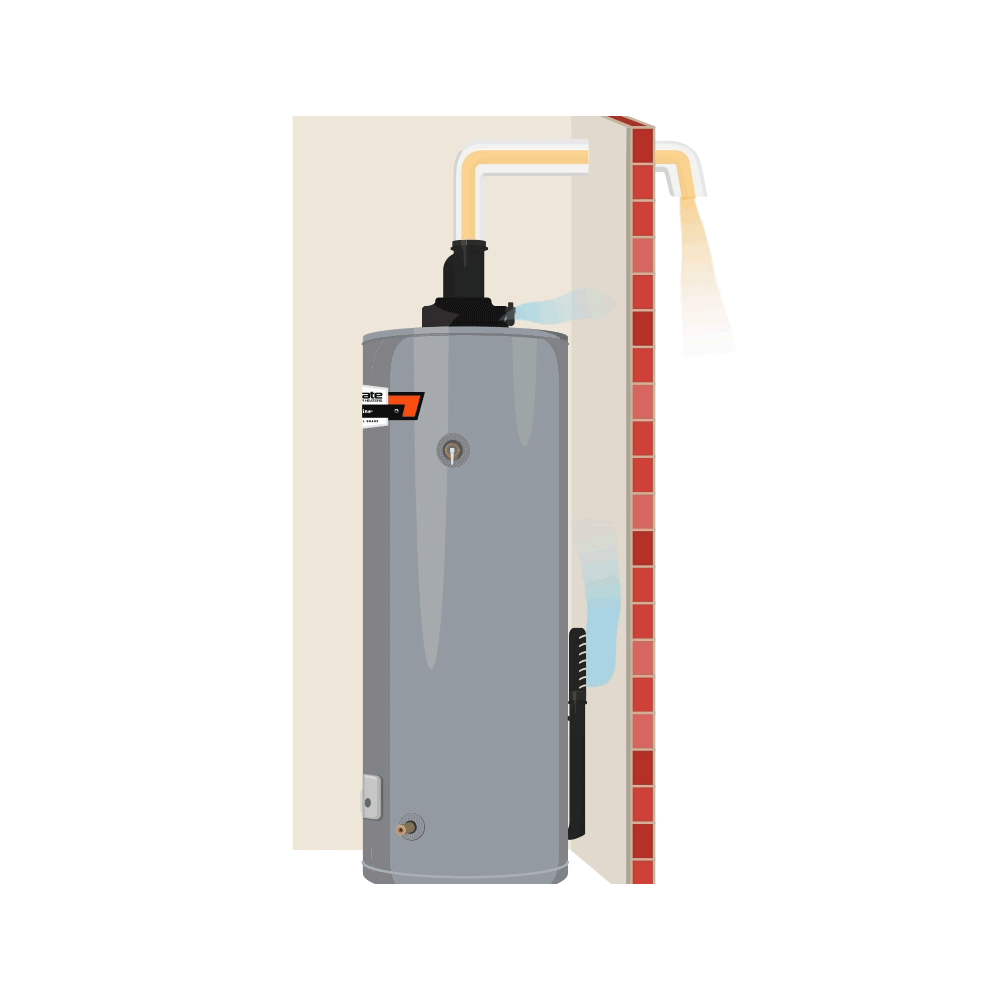
Power Vent
State power vent gas water heaters feature an electric blower fan installed atop the water heater, requiring proximity to an electrical outlet for operation. This blower mechanism is responsible for expelling exhaust gasses and excess heat through the venting system. Unlike traditional venting methods, power vent water heaters offer greater installation flexibility, allowing for either vertical or horizontal venting configurations. This versatility enables longer vent runs, addressing space constraints and sizing considerations within your home.
Moreover, power vent water heaters are renowned for their efficiency, leveraging the heat from exhaust gasses to aid in heating water, thereby promoting energy savings. Additionally, their lower exhaust temperatures permit the use of PVC piping, a cost-effective alternative to standard atmospheric vent metal piping, and offers easier assembly.
For optimal installation and performance, it is advisable to seek the expertise of a professional plumbing contractor who can ensure proper setup and adherence to safety guidelines.
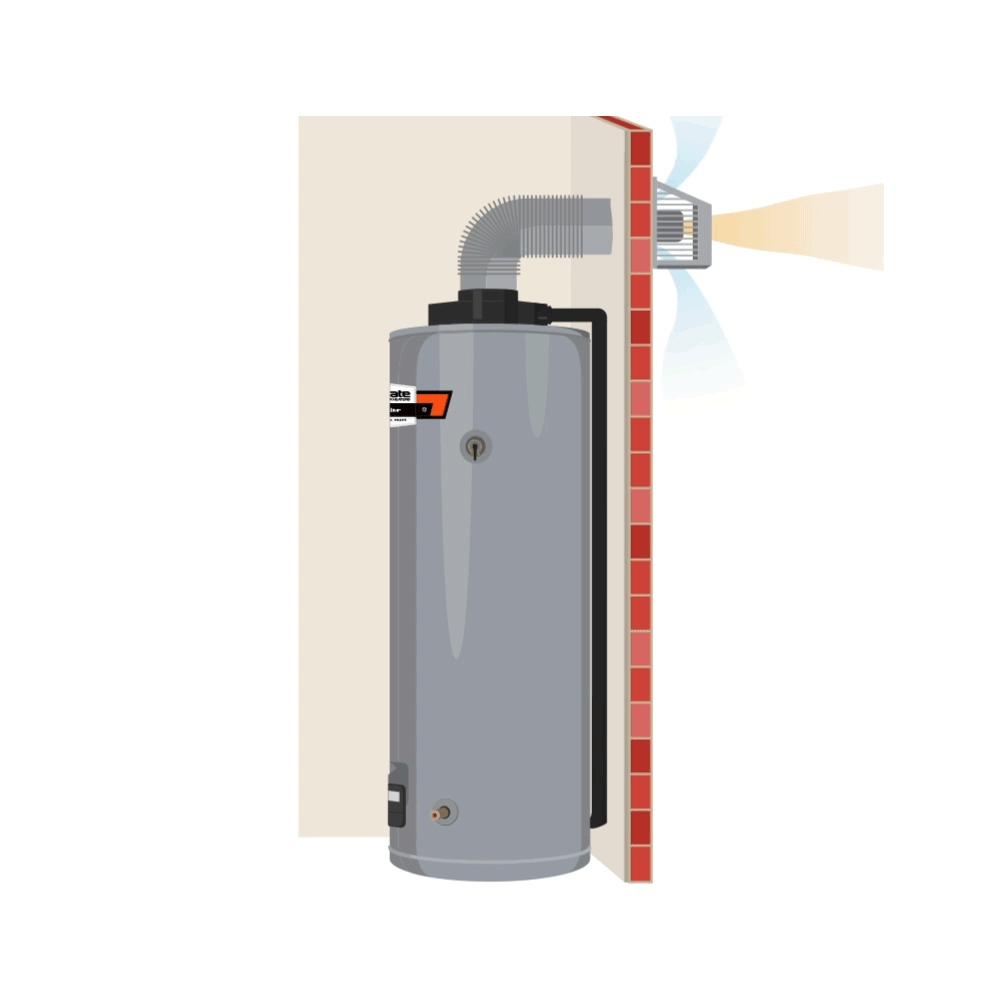
Direct Vent
Direct vent gas water heaters are specifically designed for situations where there is insufficient ventilation within the designated installation area in your home. These water heaters draw in combustion air from the exterior of your home rather than relying on indoor air. Consequently, the combustion exhaust gasses and excess heat generated during operation are vented directly outdoors.
Utilizing specialized coaxial venting systems, direct vent water heaters feature separate chambers within a single assembled vent piece for intake air and exhaust. This venting configuration runs from the water heater through the side of your home. By pulling in fresh air from outside and expelling combustion byproducts, direct vent water heaters effectively prevent any potential backdrafting issues within your home, thereby enhancing safety during gas or liquid propane water heater installation and usage.
For proper installation, it is strongly recommended to seek the assistance of a professional plumbing contractor who can ensure the correct setup and compliance with safety regulations.
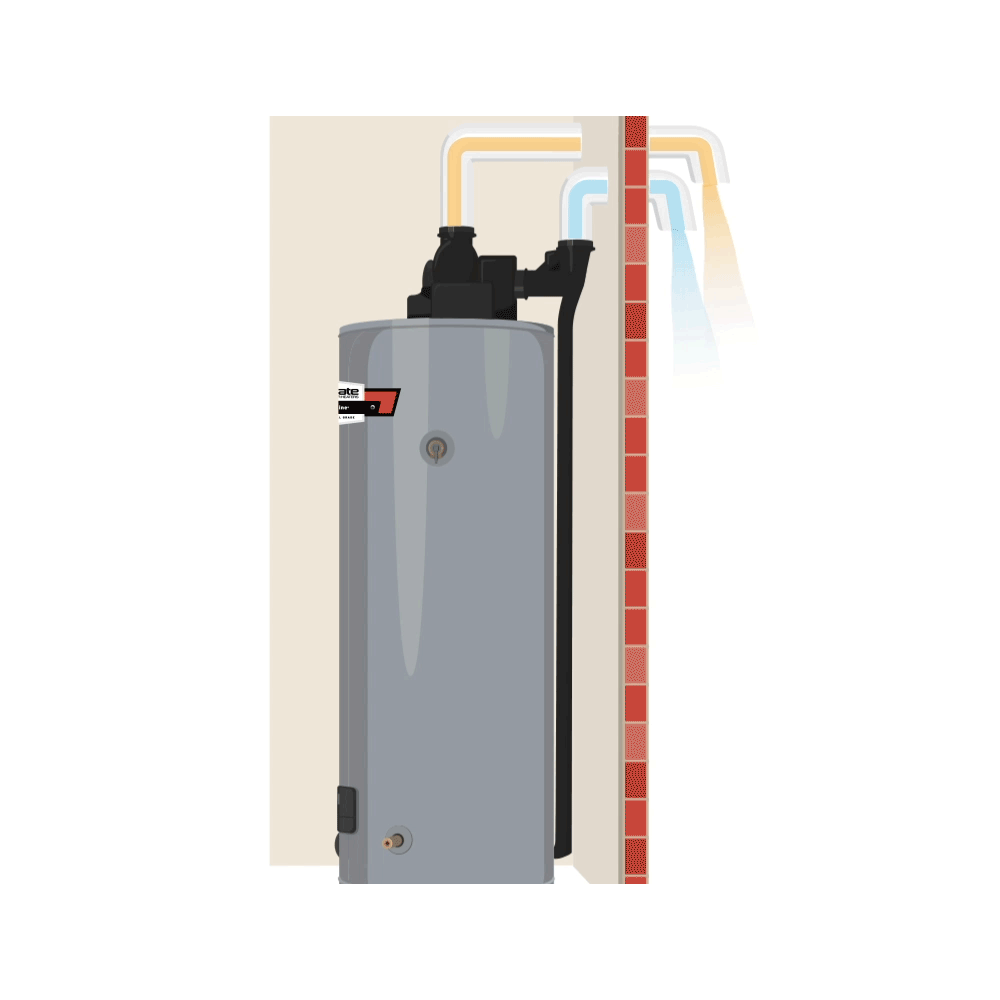
Power Direct Vent
Power direct vents are utilized in situations where the available space for water heater installation lacks adequate air for combustion and necessitates flexibility in the installation process. Before proceeding with a power direct vent installation, it is advisable to seek guidance from a professional plumbing contractor to determine if this venting method is necessary for your specific circumstances.
Similar to direct venting, power direct venting employs a blower to draw in outside air for combustion, which is then directed straight to the water heater. Additionally, the same blower is responsible for expelling combustion exhaust gasses from the water heater and venting them outside the home. Much like power vent systems, power direct vent water heaters can utilize PVC piping, offering cost-effective installation options. However, it's essential to ensure that there is an electrical outlet in close proximity to the water heater for proper installation of the blower.
Concentric Vent
Concentric venting entails a "pipe in pipe" configuration where both intake air and exhaust gas are expelled through a shared assembly. This design allows for a streamlined and visually pleasing installation with just one wall or roof penetration.
Various types of water heaters, including direct vent, power direct vent, and tankless models, can utilize concentric venting. However, the material of the concentric venting may vary depending on the specific water heater.
For certain models exclusively designed for concentric venting, such as direct vent water heaters or concentric vent tankless units, the full vent run from the water heater to the exterior of the home may utilize concentric venting. Alternatively, a concentric vent termination can be employed on power direct vent tanks or tankless water heaters to achieve the benefit of a single wall or roof penetration with an aesthetically pleasing vent termination.
In this setup, separate intake and exhaust vent pipes are routed between the water heater and the interior wall, while only the wall penetration and termination feature concentric piping. It is advisable to seek assistance from a professional plumbing contractor for proper installation.
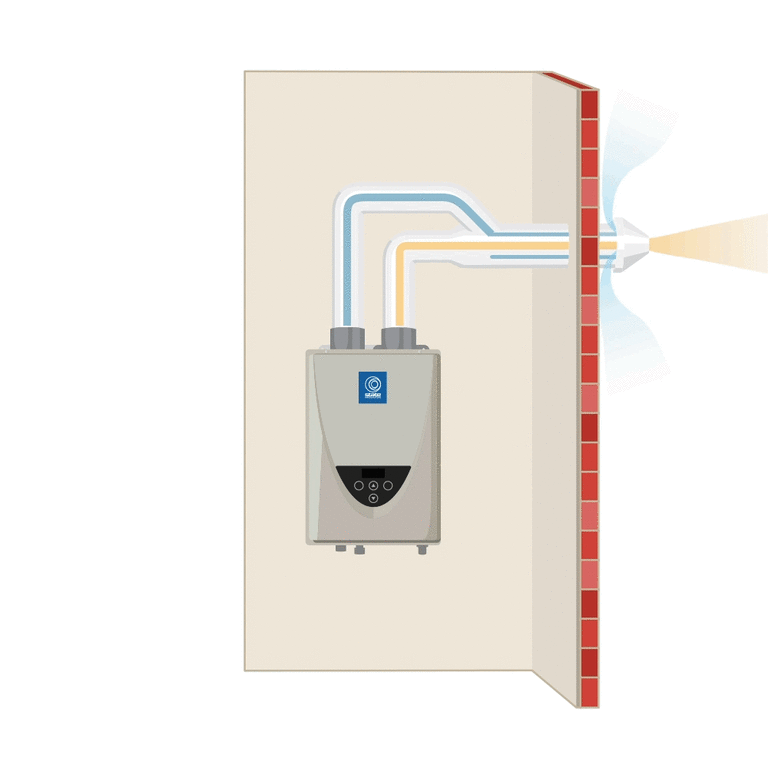
Concentric Vent Termination
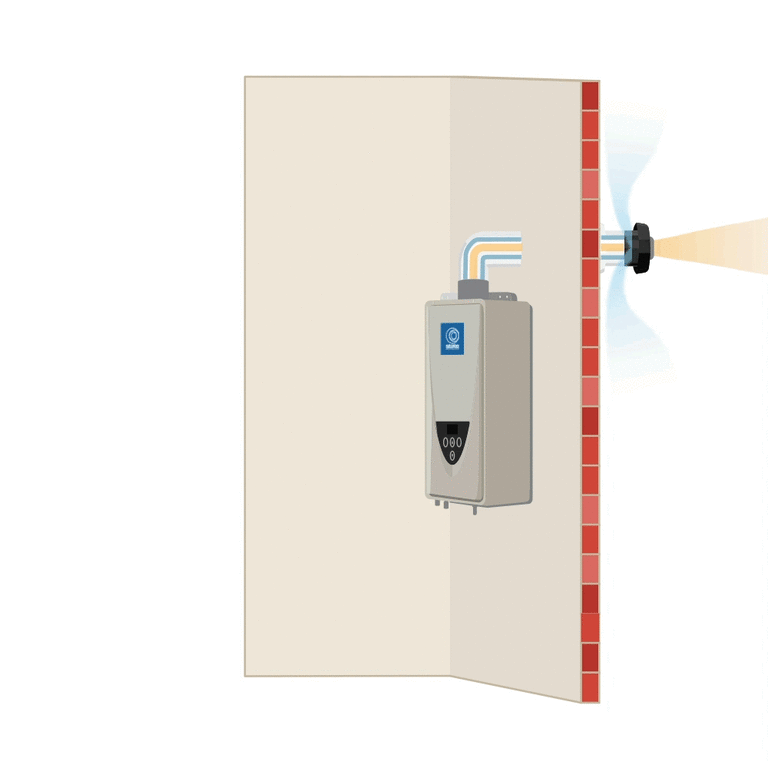
Concentric Vent Full Run
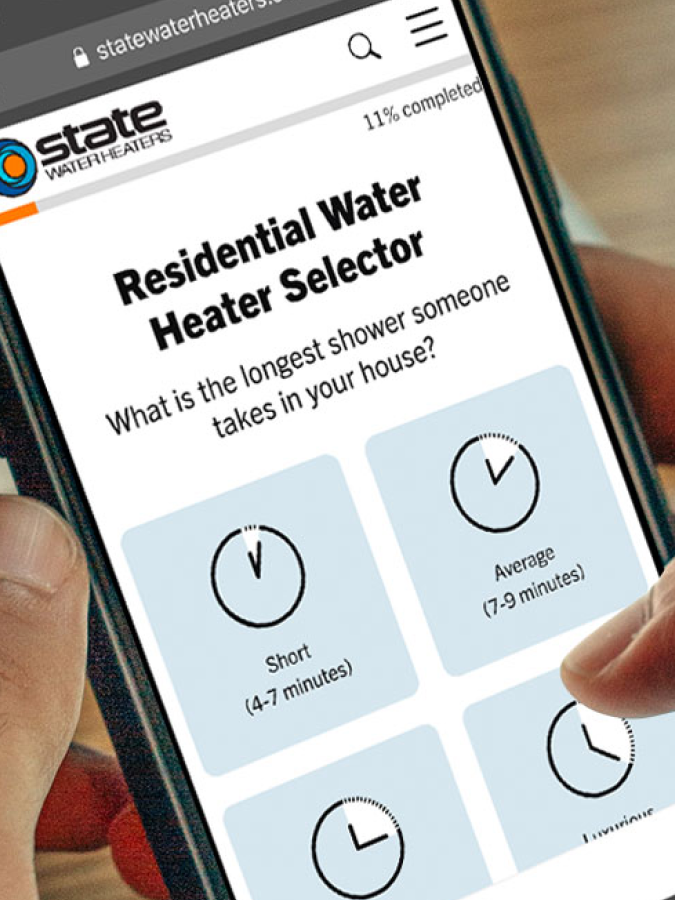
Not sure which product is right for you?
Take our water heater selector quiz to find the correct water heater for your home.
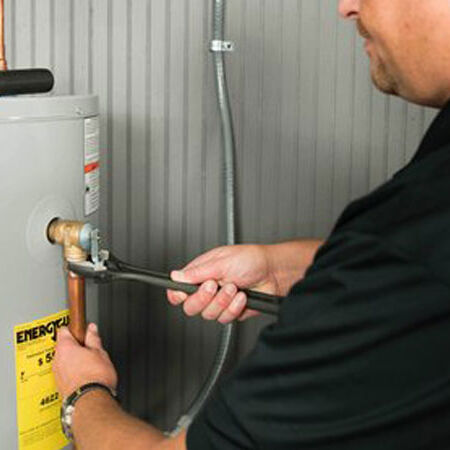
Find A Local Water Heater Pro
A. O. Smith water heaters are professionally installed by local independent contractors.
Interested in Learning More?
Why Water Heater Size Matters
Explore the factors to consider when determining the ideal size of a water heater for your requirements. Evaluate the key considerations that will influence your decision-making process
How Water Quality Affects Water Heaters
Learn about the impact of water quality on your water heater and discover practical tips and information on managing water hardness. Explore why water quality matters and effective solutions to address it
Water Heaters and Safety
Uncover the innovative design elements incorporated by State Water Heaters engineers to ensure your water heater remains both highly functional and safe for everyday use.



